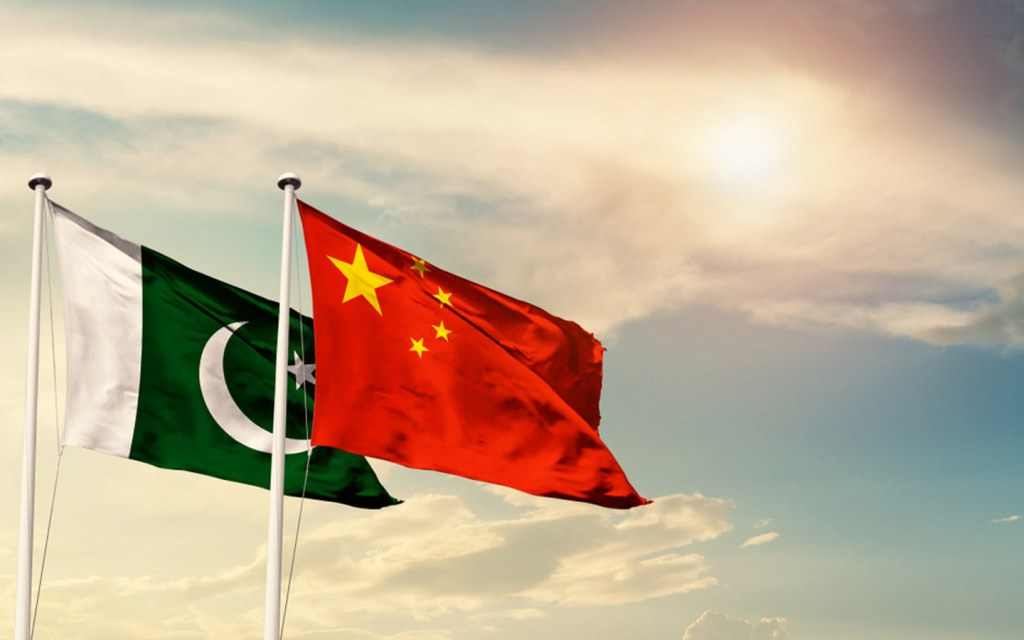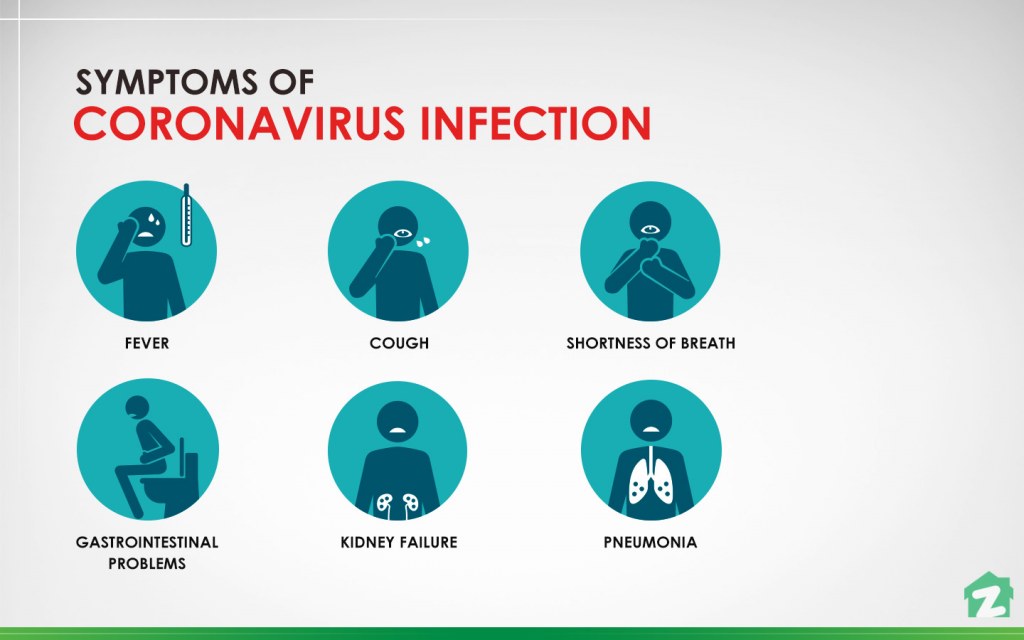Home » Laws & Taxes » Can Coronavirus Potentially Impact Pakistan’s Economy?
In This Post
– Coronavirus overview
– Impact of coronavirus on Pakistan’s economy
– Tips on how to stay safe from coronavirus
The deadly outbreak of coronavirus in China, the world’s largest exporter of goods, has caused global market volatility like never before. Unfortunately, owing to the disruption in trade and production halt in China, the economic impact of coronavirus in Pakistan has already become rather evident.
The epidemic has so far claimed the lives of more than 600 people in mainland China alone, with more cases of the disease surfacing in countries all across the globe. The infection attacks the patient’s respiratory system and may cause fatality if not treated in a timely manner. The World Health Organization, more commonly referred to as WHO, has already declared coronavirus a global health emergency and most of the international airlines have suspended flights to and from the country that is the epicentre of the fatal virus.
While the human cost of the outbreak continues to rise and certainly can’t be ignored, it is also important to talk about how the panic and fear surrounding coronavirus has exposed the commercial sector to massive losses.
Here is a brief overview of what is a coronavirus, how it started, its main causes, and how many countries have so far been affected by it. Later, we’ll discuss the potential impact of coronavirus on Pakistan’s economy as well as talk about its symptoms and what you can do to stay safe from this infection.
The Deadly Coronavirus Outbreak – An Overview

Coronavirus, also known as 019 Novel Coronavirus or 2019-nCoV, can be described as a new form of respiratory virus that is believed to have originated in the city of Wuhan in China’s Hubei Province. However, the health experts are still working on authenticating the source of the epidemic that has killed more than 550 people infected about 28,000 in mainland China. The number of suspected cases in the country is a little over 24,000 as of February 6th, according to international news outlets reporting on the epidemic.
The new disease can transmit from human to human just like the regular flu. However, unlike the normal flu, coronavirus has a mortality rate of 2.1 percent.
Over 200 confirmed cases of coronavirus have also been reported in countries across the world, including Thailand, Japan, Malaysia, Singapore, South Korea, Australia, Germany, Canada and France, among others. Several confirmed cases of this epidemic have also surfaced in the United States and the United Kingdom.
So far, there have been no confirmed cases of coronavirus in Pakistan.
It is important to mention that this respiratory virus, which has never been encountered before, may have jumped to humans from snakes and bats, as per the researchers. Initially, the international media had claimed that coronavirus originated in the Huanan Seafood Wholesale Market in Wuhan, which sells both live and recently slaughtered animals as well as seafood. Though it was later reported that the virus may have originated elsewhere before entering the seafood market.
Following the outbreak, many countries across the world suspended both passenger and cargo flights to and from China, disrupting the trade and essentially sparking volatility in the global market.
Being the neighbouring country, trade partners and one of the biggest allies of China, Pakistan resumed passenger flights to China in the first week of February 2020, bringing back a large number of students studying in the country and placing them in quarantine. Meanwhile, the halt on production in China as well as the closure of the trade route has led many to believe that the economic impact of coronavirus Pakistan can potentially be among the worst.
The Potential Impact of Coronavirus on Pakistan’s Economy
China is considered the largest exporter in the world – and owing to the free trade agreement between the Asian country and Pakistan, nearly half of the products available in our local markets bear the tag saying ‘Made in China.’ Also, with it being home to a little less than one-fifth of the world’s entire population, China also serves as the biggest consumer market in the world.
A leading news outlet recently quoted a report released by the Pakistan Bureau of Statistics, which revealed the country imported goods worth PKR 613 billion in the third quarter of 2019 from China alone. It is about one-fourth of the overall imports during that time period and solidifies the position of China as one of our most important trade partners.
Apart from affecting the import and exports between the two countries, the deadly coronavirus epidemic might also have a negative impact on the various Pak-China development projects, most importantly the China-Pakistan Economic Corridor (CPEC).
Let’s find out a little about the Pakistan-China Free Trade Deal before moving on to the hike in the prices of Chinese products following the outbreak.
Pakistan-China Free Trade Deal

The first free trade deal between the neighbouring countries of Pakistan and China was signed in 2006. The pact fully went into effect in 2007 and allowed Pakistani traders to export more than 700 products to China with zero duties. In January 2020, the second phase of the free trade agreement also came into effect, allowing Pakistani manufacturers to export around 313 new goods to the Chinese market.
The agreement also allows Pakistan to import products from China on extremely lower tariffs.
During the first phase of the free trade agreement, Pakistan imported about USD 17 billion worth of goods from China while exporting approximately USD 2.1 billion worth of products per annum.
Given these statistics, one can only imagine the potential economic impact of coronavirus in Pakistan if the trade routes aren’t completely opened and the production China doesn’t start anytime soon.
Disrupted Trade and Hike in Prices

The spread of coronavirus in China coincided with the Lunar New Year Holidays. Every year, around this time of the year, the Chinese market goes into hibernation as production work in factories is shut down and workers head to their hometowns for the holidays. However, following the outbreak of the deadly respiratory virus, the Chinese government issued travel advisories, quarantined the city of Wuhan and extended the holidays, telling people to stay in their hometown. These preventive measures subsequently extended the shutdown in factories across the country. Though the production is expected to resume from February 12 in most provinces, this delay has caused uncertainty in the global market and exposed businesses to commercial losses.
At the same time, most international companies with offshore offices in China either attempted to evacuate their residents from the country or asked them to isolate themselves to stay safe, which further worsened the looming economic crisis, as per the international publications. The broader restrictions on commercial and passenger flights as well as the closure of main trade routes to and from China also played a huge role in making matters worse for the global economy.
To prevent the outbreak of coronavirus in Pakistan, the government recently announced that it will open Khunjerab Pass in Gilgit-Baltistan – the only border crossing between the two nations – in April instead of an earlier date, according to the leading English newspapers. Situated at an altitude of more than 15,000 feet, Khunjerab Pass is the highest paved international border crossing in the world and is usually closed for traffic in November due to heavy snowfall. The mountain pass connects Pakistan and China through the mighty Karakoram Highway.
This decision was reportedly undertaken by the Government of Pakistan to avoid the risk of having the deadly virus sneak into the country through Gilgit-Baltistan – one of the most popular tourist destinations not only in Pakistan but the entire world.
Now, a large chunk of Pakistan’s export market relies on imports from China. For instance, local textile manufacturers buy raw yarn from China without having to Duty & Tax Remission (DTRE), thanks to the free-trade agreement. A significant percentage of this material is then exported to European countries, who don’t directly buy the product from China due to heavy DTRE. This is done under a re-exporting agreement, a textile industry representative recently told a national news media channel.
“We buy synthetic fabric from China, add value to it and export it to our clients mostly in Europe,” the representative told the outlet, explaining that the coronavirus epidemic is bound to affect their shipments.
The prices of mobile phone accessories and automobile spare parts are also expected to rise as these items are largely imported from China, where they are considerably cheaper due to the low cost of labour. Apart from cell phone covers, chargers and earphones, the prices of jewellery, children’s toys and children’s diapers, among other items, will also witness a hike, according to the latest reports on the topic.
The rate of garlic, which is mostly imported from China, has already seen a massive increase in the past few days alone. Traders believe that even if the trade routes are completely opened and the production work starts, it will still take until March for the prices of these goods to go down.
The economic impact of coronavirus in Pakistan is not limited to the import and export industry. On the first Monday of February, the Pakistan Stock Exchange (PSX) lost over 1,200 points amid a high inflation reading in the aftermath of the coronavirus outbreak. Though the PSX was able to recover its loss to some extent during the following week, the industry analysts told local and foreign media agencies that the coronavirus crisis will continue to impact the national and international markets. After all, China’s own market plummeted to an all-time low in more than four years following the fatal outbreak.
Meanwhile, the effect of coronavirus on CPEC is yet to be seen.
How to Stay Safe During the Coronavirus Outbreak
If you want to learn how to stay safe from coronavirus, you first need to know the symptoms of the respiratory infection.
Coronavirus Symptoms

These are the symptoms of coronavirus in humans.
- Dry cough, difficulty in breathing, high temperature. In initial stages, this disease can be mistaken for flu
- Stomach ache and diarrhoea
- Fluid filling up the lungs
- Renal failure
Preventive Measures

These are some of the safety measures and precautions for coronavirus advised by the Centers for Disease Control and Prevention.
- Thoroughly wash your hands with soap at regular intervals – especially after you go to the bathroom, sneeze, cough, or blow your nose.
- Use an alcohol-based hand sanitizer if soap and water aren’t available.
- Don’t touch your face (eyes, nose, and mouth to be specific) with dirty hands for the prevention of coronavirus
- Maintain a safe distance from people who are sick
- Use a tissue to cover your mouth and nose while coughing or sneezing. Immediately throw the tissue in the bin
- Wear a surgical mask when you are outdoors. These masks are easily available at pharmacies and medical stores for a rather economical price
So, that is all for our analysis on the effect of coronavirus on Pakistan’s economy. If you have any questions regarding the topic or want to share your thoughts on the impact of coronavirus in Pakistan, feel free to drop us an email on blog@zameen.com.
Moreover, we will be updating this blog with more details. Therefore, make sure to check back frequently.
To learn more about the Government of Pakistan’s action plan for coronavirus, stay connected to Zameen Blog, which brings you the latest news about property, construction and taxation in the country. You can also subscribe to our newsletter to receive the latest updates about the real estate trends in Pakistan.



